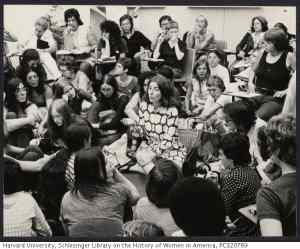
Resilience-Based Organizing departs from traditional organising approaches to address the reality of the ecological crisis. It involves 3 core ingredients: Reclaim Our Labor; Contest for Power, Create a Crisis of Governance; Lead With Vision.

Psychologist Bronwyn Gresham talks about the Mental Health impacts of climate change. She outlines the value of compassion as a support for people responding effectively to climate change.

When social change campaigns experience setbacks it’s understandable this can lead to difficulties in activist groups. Here are some tips and further resources for holding groups together in hard times.

US activist and educator Daniel Hunter shares important tips for sustaining ourselves and our movements in the face of challenging times. He outlines seven behaviors that we could incorporate into our groups so we can keep taking powerful and strategic actions.

These videos introduce skills to work through common challenges around self-care: limited time; feeling guilty; and not actually working to nourish or support ourselves.

Group morale is a key contributor to the success of a group, increasing cohesion, reducing burnout and preventing activist turnover. Build team relationships; resolve conflicts and improve communication; and celebrate success.

The goal of this book is to help become more aware of your own relationship with power. Despite the many negative associations and memories we have about power (mostly it’s misuse), power isn’t good or bad, and it is necessary.

A guide to help activists understand and improve trauma support and recovery after police brutality.

A useful model for understanding activist burnout and how to avoid it from the Transitions Towns movement. Includes a downloadable worksheet with prompts for reflection.

A review of Katrina Shield’s ‘In The Tiger’s Mouth: An Empowerment Guide for Social Action’. What most distinguishes this books is its emphasis on three elements not often considered in other campaigning texts: self-awareness, collaboration, and self-care.

A group’s culture can have a big impact on the likelihood of stress and burnout for members and staff. It’s possible to create a group culture that supports self-care, balance and sustainable work loads and patterns.

Physical, emotional & spiritual renewal is crucial to looking after ourselves for the long haul. Tips on how activists can manage high stress.

Consciousness raising was a key element of the second wave women’s movement enabling women to recognise that the personal is political. This article gives an overview of group consciousness raising processes relevant for any group based on a shared identity or experience of oppression.

Hope in the Dark was written by Rebecca Solnit to help activists and campaigners find hope in times of struggle. Here Matt Ross reviews the American author’s arguments for keeping the faith in times of despair.

A book review of The Transition Handbook by Rob Hopkins with emphasis on its insights around the emotional & psychological impact of climate change.

This article explores some of the ‘cognitive errors’ or ‘traps’ that contribute to activist burnout. Read through this list and see if you might need to adjust your perspective, in the interests of your health, wellbeing and effectiveness.

In the second part of this article Mark and Paul Engler further explore Bill Moyer’s Movement Action Plan and its implications for social movements.

We tend to talk about activist burnout as an individualised experience – but the Movement Action Plan, a framework for understanding social movements, factors in perception of failure, providing insights and hope for navigating the downs in movement life.

In Hungary, digital campaigning organisation aHang has been winning big and building people power in a difficult political environment. Their homecare campaign was a huge win for Hungarian carers, and people power everywhere.

Activists are often so focused on problems – it’s important to take in wins, whether big or small, to sustain us through the struggle. This article includes reminders of what we can celebrate, how, and why it is so important.


















